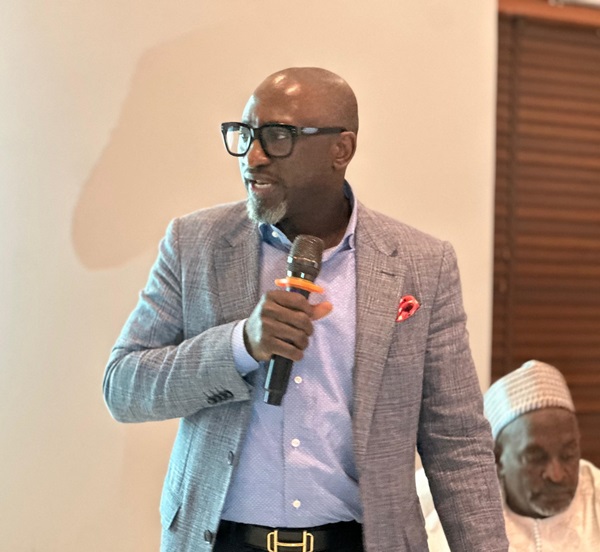
Lawmakers from Bauchi, Borno, Kano and Sokoto States have launched a coordinated legislative initiative to reduce the number of zero-dose children in Nigeria — those who have not received even a single routine vaccine.
The initiative, now dubbed the ‘Lagos Declaration,’ marks a major step toward addressing Nigeria’s persistent immunisation equity gaps.
Speaking in Abuja after the retreat, chairman of the House Committee on Health Care Services, Hon. Amos Magaji described the declaration as the outcome of a high-level Legislative Retreat on Immunisation Equity, held from July 18 to 19, 2025, in Lagos. The retreat, organised under the Zero Dose Learning Hub (ZDLH), brought together stakeholders from the National Assembly, State Houses of Assembly and primary health care development agencies (SPHCDAs) across the four states.
With the theme, “Legislative Partnerships for Reaching Zero-Dose Children in Nigeria,” the retreat aimed to strengthen political accountability and enhance strategies to reach unvaccinated children, especially in rural and conflict-affected areas.
“We are confronting a preventable tragedy,” said Magaji. “Too many Nigerian children are still missing life-saving vaccines. This retreat was about taking legislative responsibility for health equity.”
Deliberations at the retreat spotlighted critical systemic challenges. One major concern was the absence of dedicated budget lines for routine immunisation in several state budgets, undermining sustainable vaccine financing. Other barriers included socio-cultural resistance, conflict-related access issues and geographic inaccessibility, all of which hinder immunisation efforts in vulnerable communities.
Participants also noted that many SPHCDAs still lack governing boards — a gap that hampers effective oversight and coordination in service delivery.
“These gaps are why Nigeria remains among the top five countries globally with the highest number of zero-dose children,” Magaji said.
At the close of the retreat, lawmakers issued a joint communique outlining legislative commitments to reverse this trend. Key among them was a resolution to convene a national meeting of health committee chairpersons from all 36 states by Q4 2025 to foster nationwide policy alignment.
Lawmakers also pledged to advocate for the inclusion of specific immunisation budget lines in their respective 2026 state budgets. This, they said, would guarantee sustained funding for vaccine procurement and delivery.
Additionally, the legislators committed to conducting oversight visits to ZDLH-supported states — starting with Borno — to assess implementation of the Basic Health Care Provision Fund (BHCPF), track counterpart funding, and review the status of state health memoranda of understanding (MoUs).
The communique also called for improved legislative engagement in decentralised immunisation monitoring (DIM) surveys to promote local accountability and real-time responsiveness to gaps in service delivery.
To ensure consistent monitoring, state health committees will now carry out quarterly oversight reviews to verify timely release and utilisation of funds allocated for immunisation and primary healthcare.
Magaji further announced plans to brief local government chairpersons and legislators representing ZDLH-supported local government areas (LGAs) on DIM findings, as part of efforts to deepen grassroots ownership and responsiveness.
“This is no longer just a health challenge. It’s a national development emergency,” he said. “The era of fragmented efforts is over. Legislators must lead the charge.”
According to the World Health Organisation (WHO) and UNICEF, over two million Nigerian children remain unvaccinated, many residing in remote, underserved or conflict-affected communities.
The ZDLH initiative, backed by a consortium of global development partners, aims to test and scale innovative, locally driven immunisation solutions in its focus states. Central to its work is the IRMMA strategy: identify, reach, monitor, measure and advocate.
With the National Assembly and key state legislators taking active roles, the focus now shifts to implementation. For many stakeholders, the Lagos retreat is not just a symbolic gesture. It could represent a pivotal turning point in Nigeria’s effort to leave no child behind.

